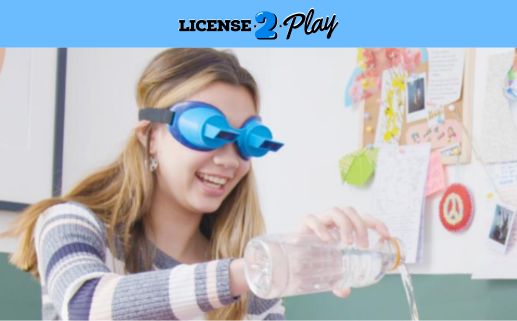
In the fast-paced world of today, parents and educators are constantly seeking ways to enhance the cognitive development of children. One effective and enjoyable method is through the incorporation of educational toys into their daily routines. License 2 Play, a renowned provider of wholesale toys and gifts, recognizes the importance of these tools in fostering learning and intellectual growth. In this article, we delve into the realm of educational toys, exploring their impact on cognitive development and why retailers should consider adding them to their offerings.
The Foundation of Cognitive Development: Cognitive development refers to the construction of thought processes, including problem-solving, decision-making, memory, and language acquisition, which begins in early childhood. Educational toys play a pivotal role in shaping these cognitive foundations by engaging children in activities that stimulate their minds.
Types of Educational Toys:
- Building Blocks and Puzzles: Building blocks and puzzles are timeless educational toys that encourage spatial awareness, problem-solving, and fine motor skills. Children learn to analyze shapes, sizes, and patterns as they construct and deconstruct various designs.
- STEM Toys: Science, Technology, Engineering, and Mathematics (STEM) toys are designed to spark an interest in these disciplines from a young age. These toys promote critical thinking, logical reasoning, and creativity, laying the groundwork for future success in these fields.
- Educational Games: Board games and card games can be both entertaining and educational. They enhance cognitive skills such as strategic thinking, numeracy, and literacy. Through gameplay, children learn to follow rules, take turns, and make decisions.
- Language and Reading Toys: Books, alphabet blocks, and language-focused toys contribute to the development of language skills. Exposure to words, letters, and storytelling fosters early literacy, expanding a child's vocabulary and comprehension abilities.
- Art and Craft Supplies: Creativity is a powerful cognitive tool. Art and craft supplies allow children to express themselves while refining their fine motor skills. These activities also promote imagination and problem-solving as they bring their visions to life.
The Benefits of Educational Toys:
- Holistic Development: Educational toys are designed to target various aspects of cognitive development simultaneously. By engaging in activities that require problem-solving, creativity, and logical thinking, children experience well-rounded growth.
- Enhanced Social Skills: Many educational toys involve interaction with peers or adults, fostering the development of social skills. Board games, for instance, encourage cooperation, communication, and the understanding of rules and boundaries.
- Long-Term Impact on Academic Success: Research suggests that children exposed to educational toys at a young age tend to perform better academically. These toys lay the groundwork for a positive attitude towards learning and a strong foundation in essential subjects.
- Cultivation of Critical Thinking: Educational toys often present challenges that require critical thinking and problem-solving skills. By navigating through these challenges, children develop the ability to analyze situations, make informed decisions, and think independently.
Why Retailers Should Embrace Educational Toys:
- Meeting Parental Demand: In an era where parents are increasingly focused on providing holistic development for their children, the demand for educational toys is on the rise. Retailers who offer a diverse range of these toys can attract a broader customer base.
- Enhancing Reputation: Retailers that align themselves with the educational needs of children build a positive reputation within their communities. This alignment can result in increased customer loyalty and word-of-mouth referrals.
- Contributing to Community Well-Being: By promoting cognitive development through educational toys, retailers actively contribute to the well-being and intellectual growth of the community's youngest members. This positive impact goes beyond commerce, establishing retailers as advocates for education.
- Diversifying Product Offerings: Diversification is a key strategy for long-term success in the retail industry. By adding educational toys to their product offerings, retailers can tap into a growing market segment and differentiate themselves from competitors.
Educational toys play a pivotal role in nurturing the cognitive development of children, providing a foundation for success in various aspects of life. Wholesale distributors, such as License 2 Play, who recognize the importance of these tools not only meet the evolving needs of parents but also contribute significantly to the intellectual growth of the communities they serve. As we continue to prioritize the well-being of our children, the incorporation of educational toys into wholesale offerings becomes not just a business strategy but a commitment to shaping a brighter, more intellectually empowered future.
